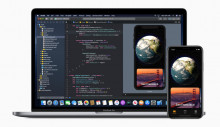“DeathStalker” hackers are (likely) older and more prolific than we thought
In 2018, researchers from security firm Kaspersky Lab began tracking “DeathStalker,” their name for a hacker-for-hire group that was employing simple but effective malware to do espionage on law firms and companies in the financial industry. Now, the researchers have linked the group to two other pieces of malware including one that dates back to at least 2012.












































































